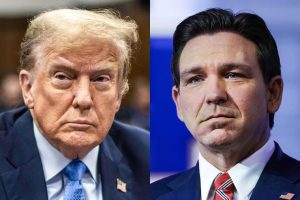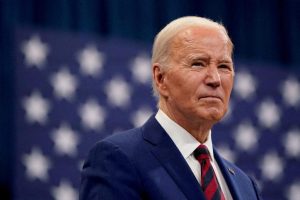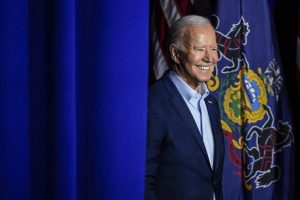Nebraska’s Electoral College Vote Allocation Faces Legislative Hurdles
In a recent development, the proposed change to Nebraska’s Electoral College vote allocation, supported by former President Donald Trump, encountered another obstacle in the state Legislature. This setback highlights the ongoing debate surrounding the Electoral College system and its impact on presidential elections.
Challenges in the State Legislature
The push to alter Nebraska’s Electoral College vote allocation has been met with resistance in the state Legislature. Lawmakers are divided on the issue, with some supporting the proposed change and others expressing concerns about its potential implications. This legislative gridlock underscores the complexities of reforming the Electoral College system at the state level.
Implications for Presidential Elections
The outcome of this legislative battle could have significant implications for future presidential elections. The current winner-takes-all system in Nebraska, where the candidate who wins the popular vote receives all of the state’s Electoral College votes, has been a point of contention. Supporters of the proposed change argue that it would provide a more proportional representation of the state’s voters in the Electoral College.
The Debate Continues
As the debate over Nebraska’s Electoral College vote allocation continues, stakeholders on both sides of the issue are making their voices heard. Advocates for reform emphasize the need for a more equitable and representative electoral system, while opponents raise concerns about potential unintended consequences. The outcome of this debate will shape the future of presidential elections in Nebraska and could have broader implications for the Electoral College system as a whole.
Looking Ahead
As Nebraska grapples with the question of how to allocate its Electoral College votes, the state Legislature faces a critical decision. The outcome of this legislative battle will not only impact future presidential elections but also serve as a litmus test for the broader debate over Electoral College reform. Stay tuned for updates on this evolving story as Nebraska navigates the complexities of its electoral system.

Nebraska’s Electoral Vote System Faces Another Setback in Legislature
Nebraska’s unique system of allocating electoral votes has once again come under scrutiny in the state legislature. With recent proposals to change the current system, which awards electoral votes by congressional district rather than on a winner-takes-all basis, the debate over Nebraska’s electoral vote system has intensified.
Background of Nebraska’s Electoral Vote System
Nebraska is one of only two states, alongside Maine, that does not use a winner-takes-all approach to awarding electoral votes. Instead, Nebraska allocates two electoral votes to the statewide winner and one vote to the winner of each of the state’s three congressional districts. This system has been in place since 1991 and was intended to give residents of every district a voice in the presidential election.
Proposed Changes in the Legislature
Several bills have been introduced in the Nebraska legislature that seek to change the current electoral vote system. Some proposals aim to move towards a winner-takes-all model, while others suggest alternative methods for allocating electoral votes.
Arguments in Favor of Change
- Supporters of switching to a winner-takes-all system argue that it would make Nebraska more competitive in presidential elections and give voters a stronger voice in national politics.
- Some legislators believe that the current system dilutes the impact of Nebraska’s electoral votes and overlooks the preferences of the majority of voters in the state.
Arguments Against Change
- Opponents of altering the electoral vote system argue that it would disenfranchise voters in certain congressional districts and reduce the overall diversity of opinions represented in the election.
- Some legislators fear that changing the system could lead to increased partisanship and polarization within the state.
Case Study: Nebraska’s Electoral Vote in the 2020 Election
In the 2020 presidential election, Nebraska once again demonstrated the potential impact of its unique electoral vote system. While the state’s overall vote went to Donald Trump, Democrat Joe Biden was able to win one electoral vote by carrying Nebraska’s 2nd congressional district.
Practical Tips for Understanding Nebraska’s Electoral Vote System
For residents of Nebraska and those interested in the state’s electoral process, it’s important to stay informed on the current debates surrounding the electoral vote system. Here are some practical tips for understanding Nebraska’s electoral vote system:
- Research the history and purpose of Nebraska’s unique electoral vote allocation.
- Stay up to date on proposed changes in the legislature and their potential implications.
- Consider the arguments for and against altering the current system and form your own opinion on the matter.
Benefits of Nebraska’s Current Electoral Vote System
While the debate over Nebraska’s electoral vote system continues, there are some benefits to the current model that should be considered:
| Benefit | Description |
|---|---|
| Representation | Every district in Nebraska has a say in the presidential election. |
| Diversity of Opinions | The current system allows for a broader range of political views to be represented in the electoral college. |
Overall, the future of Nebraska’s electoral vote system remains uncertain as the legislature continues to debate potential changes. Whether the state will maintain its current system or adopt a new approach, the discussion highlights the importance of understanding and engaging with the electoral process at both the state and national levels.
The post Nebraska’s Electoral Vote System Faces Another Setback in Legislature appeared first on lawyer.bet.












